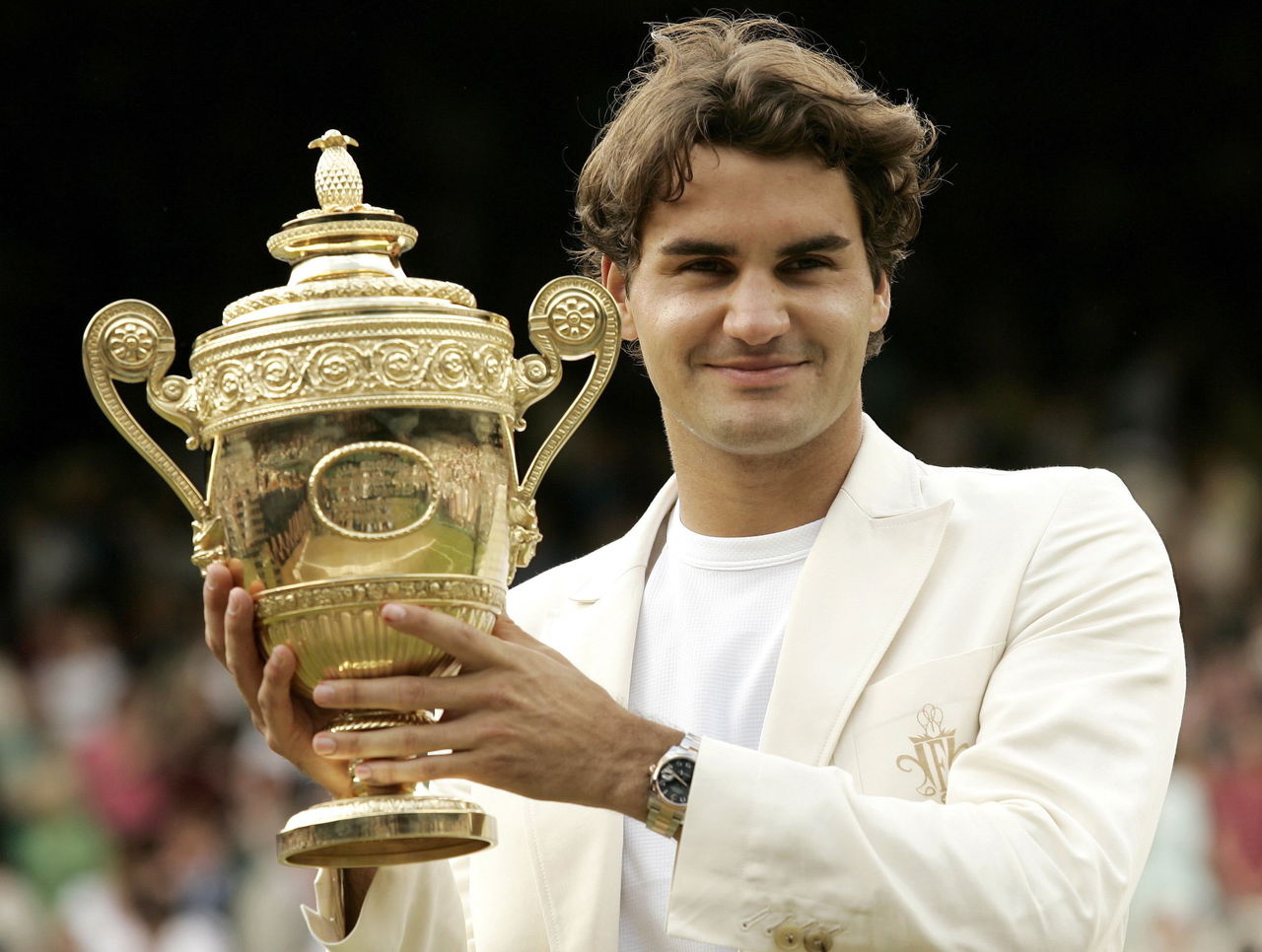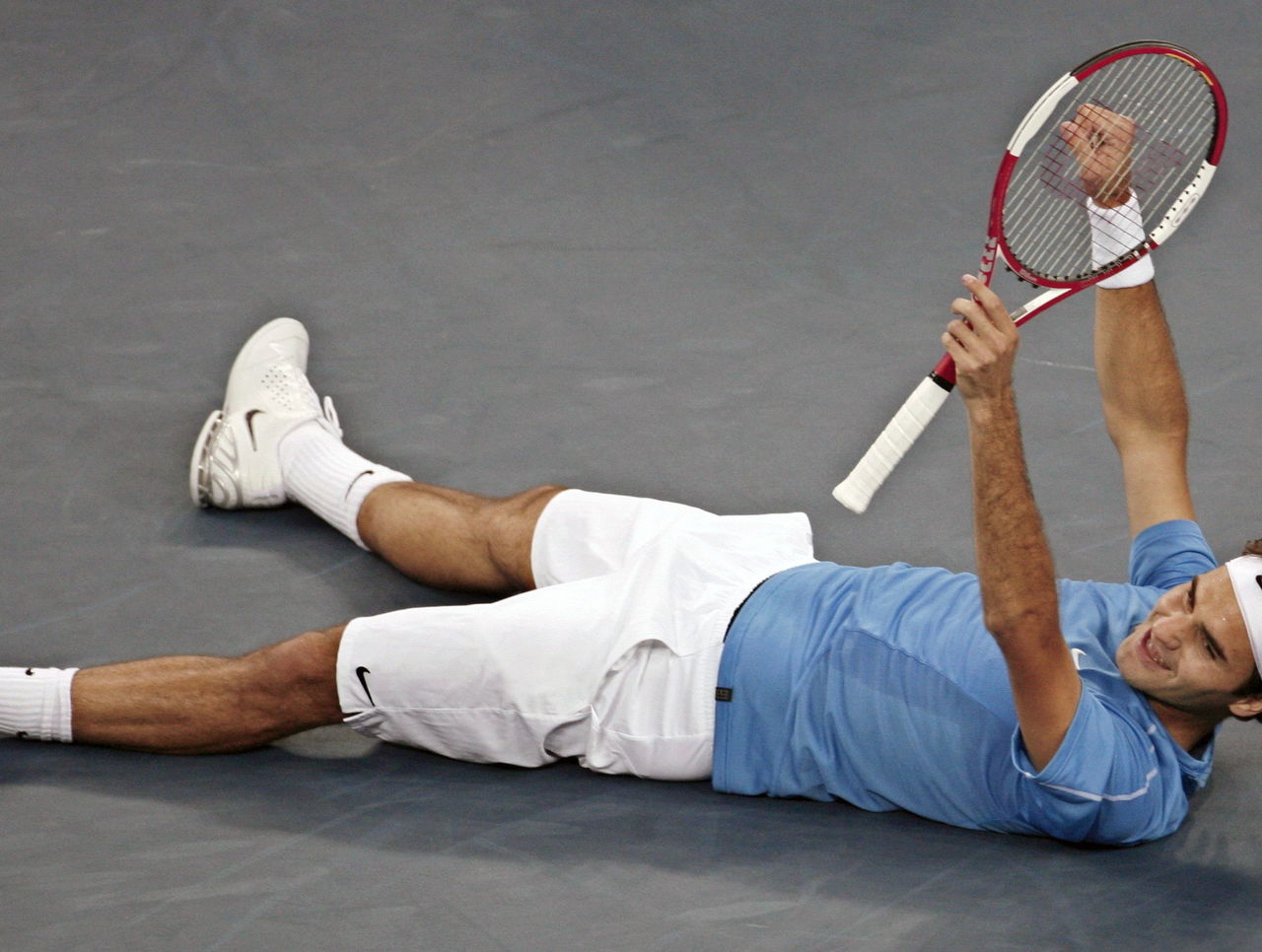Appreciating Roger Federer as underdog
The underdog story is as ubiquitous as it gets. It is routinely beaten to death in arenas ranging from literature to business to politics to war. But as much as anything, it's an idea that appeals to the young sports fan. Because a young sports fan is a romantic, for whom the illusion that anything is possible, that anybody can win, hasn't yet begun to fray.
I was a teenager when Roger Federer started his run of historical dominance, at Wimbledon in 2003, young enough to still have a sense of idealism about how sports - and, by extension, the world - ought to work. And to an idealistic fan, who dreams of fairness, equanimity and balance, nothing could have been more disheartening than the impregnable, dynastic force that was Federer at his peak.
I had no sense then of history being made, of witnessing a generational talent the likes of which may never come around again. I didn't appreciate the grace and liquidity and geometric precision of an artist who made the game look as pretty as a game can look. All I saw was a despot; an iron-fisted ruler of the tennis proletariat.

Part of getting older as a sports fan means coming to grips with the fact that you'll never be as physically remarkable as the people you're watching, who possess bodies capable of so much more than yours that they could as well belong to a different species. What made peak Federer the perfect foil was how good he was at making his opponents look like plain old human beings.
You'd watch these poor schlubs growling, grunting, throwing themselves around the court with every conceivable particle of will, killing themselves only to put a dent in the monolithic force on the other side of the net - a wizard who seemed to be everywhere at once, seemed able to make the ball slow down for him, never seemed to tire or even sweat, only looked bemused and slightly bored, like there was no joy to be had in crushing the souls of some of the finest athletes on the planet. Nobody has ever made athletic brilliance look as effortless as Federer did.
And the thing that irked me most about him was how he would still fall to the ground whenever he won a Slam, as if he couldn't believe he'd pulled it off. Again. Even once he'd won countless tournaments, even after the breezy three-setters in which victory hadn't been in doubt for a second, there he was, falling over at the end. It felt so put on. So robotic.

Time, though, has a way of altering perceptions. While Federer remains a top player, he is very much on the wrong side of the hill, and that affects me deeply. Not just because I've grown up and now watch sports less romantically, though that's part of it.
The truth is, great athletes in decline always make me weepy. Maybe that's because the career of an athlete is like a lifespan in miniature - from rookie season to retirement press conference, first steps to last words - and the inevitable fall is a haunting reality that forces us to confront our own limits.
When you watch historically great athletes in their primes, part of you expects them to keep doing what they're doing forever. It's when they suddenly no longer can that you finally sense their humanity; the desperation, the fear, the feeling that something irretrievable is slipping away.
Federer has shown this year that he's got plenty of life left. It's strange to be surprised at that, considering he's not quite 33, but in a sport as physically punishing as tennis, in which you start young and peak early, Federer is practically a senior citizen. It wasn't so long ago that people were actively calling for him to retire.
Instead, he's raged against the dying of the light. He hired Stefan Edberg to coach him. He switched to a larger racket to make up for a decline in speed and his once-peerless footwork. After a 2013 tailspin that figured to be permanent, he is 29-6 in 2014, ranked fourth after dropping as far as eighth.
He beat Novak Djokovic in February for the first time since 2012, and six weeks later beat him again. He won a title, made the finals of two Masters events, and put together an 11-match winning streak.
At his best, Federer can still dazzle and delight with the best of them. But rarely does it look effortless anymore. He labors. He sweats. He grunts more than he used to. He makes head-scratching mental mistakes. He shanks backhands. He has to dig deep and grind out wins. This is a Federer I find infinitely more fascinating to watch.
Though he hasn't made a Slam final since Wimbledon two years ago, he's done enough to make you believe he's got at least one more run in him. But if he's going to make that run, it'll be as an underdog.
That's especially true at the French Open, where he's always been most vulnerable, where he's won only one of his 17 Slams, and where he's never beat Rafael Nadal.
Oddsmakers have pegged Federer's chances at 12-to-1. While he has a relatively easy path to the semis, he would still likely have to topple both Nadal and Djokovic to win.
That will take a heroic effort from Federer. It will take the kind of effort it used to take others to beat him. If he manages to pull it off, I suppose I won't mind if he falls over afterwards.